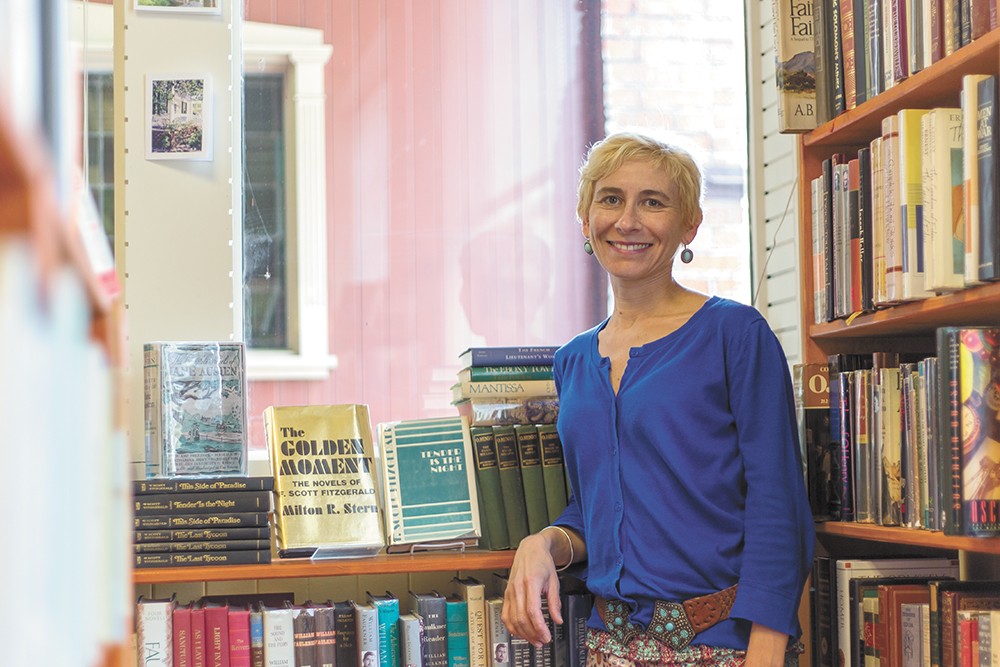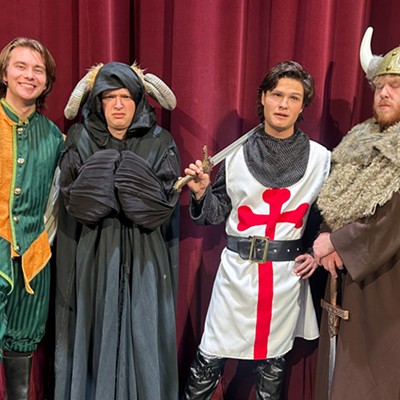As far back as Marina Drake has been able to delve, there has been a bookstore here at 123 South Wall Street.
Before she took on the business, it had been owned and operated by Jerry Thrift, a former buyer at Auntie's. He gave it its current name, Monkeyboy Books, representing the tidy intersection of his anthropology background and a favorite line from the cult sci-fi movie The Adventures of Buckaroo Banzai Across the 8th Dimension.
Before Jerry it was Greg Delzer, who owned it for four years as Defunct Books before relocating the name and inventory to Iowa City. Sometime before that it was Suntree Books, which sat above Inland Books, also run for a time by Thrift. Prior to that it was allegedly The Yantra, owned by sisters Dorothy and Betty, votaries of metaphysics who bought it from someone called Doug.
With each change of hands, the oral history gets sketchier, even for Drake's occasional employee Steel Orr, an itinerant former bookstore owner himself who has worked at Monkeyboy and its various incarnations since the 1970s.
"People know that this space is almost meant to be a bookstore because it dates so far back," says Drake. A native of Montpellier, France, she was compelled to buy the bookstore from Thrift two years ago because she was fond of its carefully curated selection of children's literature.
Now, however, that long concatenation of owners and identities is close to ending forever. Despite advertising in print and online, doing cross-promotion with nearby businesses like Interplayers Theatre, cultivating a devoted circle of repeat customers, and augmenting the previous inventory of 16,000 books, Drake says that Monkeyboy's sales have fallen to a point where they aren't even covering essential costs.
In reluctant response, she's begun jettisoning backroom stock, selling whole genres of books for half price, and separating contemporary (post-1980) from classic fiction in a last-ditch appeal to customers' natural preferences. Even during the store's heyday there were haphazard piles of books hiding serendipitous finds; today those piles are being stacked for quick sale or donation.
"I'm doing this now because my kids are away and I cannot sit here doing nothing. But knowing that I can't get income from this business, I got a job teaching, and at the end of August I'm going to be very busy. So my question is, how am I going to manage and keep it open?" asks Drake.
For now, then, the boxed hardcover anthologies of Dashiell Hammett, the once-read Hollywood and historical biographies, and the vintage Modern Library sets of Jane Austen will remain among and atop the wooden bookshelves, their prices penciled by hand on the corner of the flyleaf.
But if the bookstore is unable to rally quickly through, say, the help of skilled volunteers or by finding a new buyer, it will most certainly close, which will result in more than just a vacant space.
"Interplayers is trying hard to build a community," says Drake, "and we are working together with the Rocket [Bakery] to tie this block together. They're working hard to revive this neighborhood. But if Monkeyboy goes, their effort is going to be cut short."
It comes down to three possible outcomes: selling Monkeyboy outright, donating the stock to schools and locking its doors, or generating the meager average of $100 in daily sales to sustain its operation, says Drake.
"There's also the option to move it somewhere else, but I'm afraid that if I do so, Monkeyboy will never be the same. I have a feeling it's supposed to be here and nowhere else." ♦




















